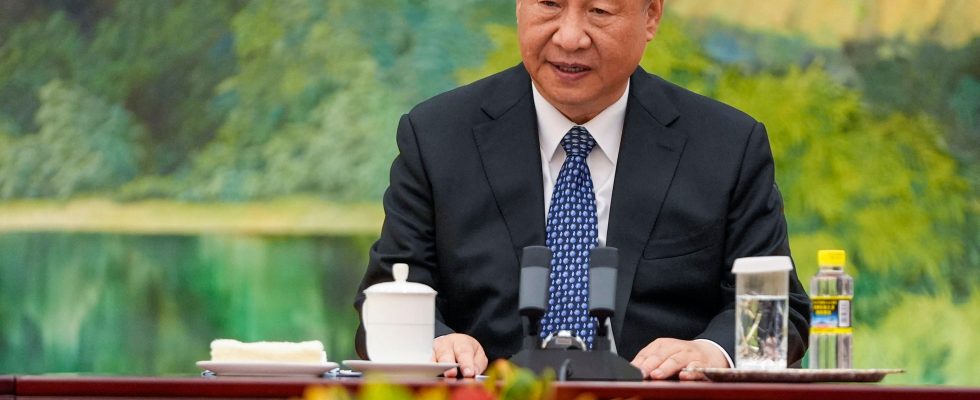It is a rare measure intended to restore momentum to the world’s second-largest economy. China will sell a first batch of long-term government bonds this week, the Ministry of Finance announced on Monday, May 13.
The country emerged from deflation in February but is expected to struggle to achieve its gross domestic product (GDP) growth target of 5% if it remains on its current trajectory, according to many economists.
The state will begin issuing 30-year bonds on Friday, as part of a planned sale of more than $138 billion in debt, according to a notice published on the ministry’s website. Other bonds with maturities of 20 years and 50 years will be put on sale, on May 24 and June 14, respectively. The Finance Ministry did not specify the number of bonds that will be issued.
High unemployment rate
Volatility in the real estate market and high unemployment, particularly among young people, are among the government’s main concerns regarding the Chinese economy. The sale of bonds had been mentioned in recent months by the Chinese authorities, with Prime Minister Li Qiang having indicated in March that they would be used to finance major projects of strategic importance.
China has only sold government bonds of this type on rare occasions, to deal with major economic difficulties, such as at the start of 2020 to finance efforts to fight the Covid-19 pandemic. Consumer prices in China rose in April for the third consecutive month, confirming the world’s second-largest economy’s exit from deflation, but demand remains relatively weak in the country.
Real estate has long represented in the broad sense more than a quarter of China’s GDP and constituted an important source of employment. But this key sector is now under pressure, with certain developers on the verge of bankruptcy (Evergrande, Country Garden, etc.) and falling prices which dissuade the Chinese from investing. Beijing’s support measures for the sector have so far had little effect.
Authorities have lifted restrictions on home purchases in some regions, including the major cities of Hangzhou (east) and Xi’an (north), to boost property purchases.
More ambitious measures
At the annual meeting of China’s parliament in March, leaders acknowledged the problems facing the economy, and pledged to take measures this year to revive economic growth.
Premier Li Qiang said it would be “not easy” to achieve GDP growth targets this year, given the “persistent risks and hidden dangers” still weighing on activity. Housing Minister Ni Hong said on the sidelines of the meeting that resolving the housing crisis would also be a challenge. He stressed that real estate companies that “need to go bankrupt must go bankrupt, and (that) those that need to be restructured must be restructured.”
But in recent months, government officials have been asked by economic players to unveil more ambitious measures to revive economic activity. The youth unemployment rate reached an unprecedented 21.3% in mid-2023, before authorities stopped publishing monthly figures. Investors have called for much greater action by the government to turn around China’s economy.
